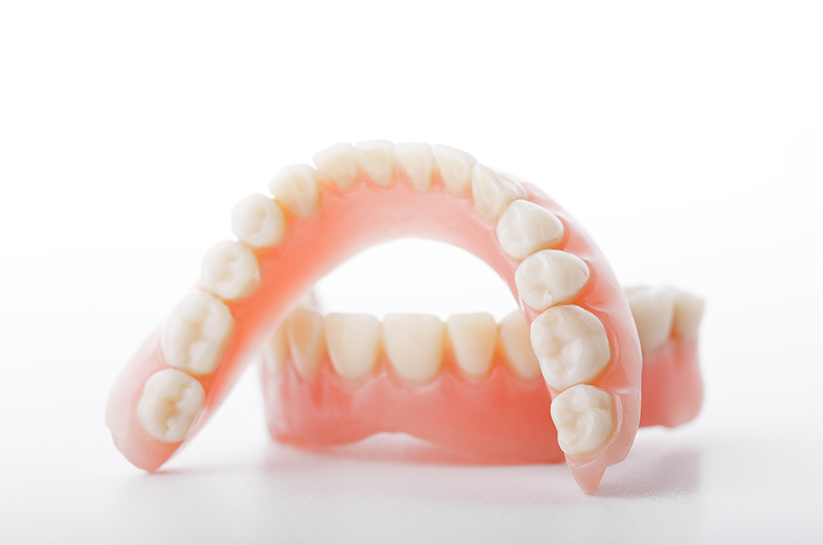Dental crowns are becoming the most common dental restoration technique globally. Approximately 15 million people have had a bridge or crown placement procedure in the United States of America alone. Therefore, if you wish to get a dental crown, you will be joining the millions in your pursuit of smile improvement. Dental healthcare has evolved in major ways that allow dentists to apply particular techniques that give you functional and pleasing crowns. Are you ready to learn about all there is to know about dental crowns? If yes, then you just landed on the right article.
Things You Need to Know About Dental Crowns
Before we get rolling, the first question you might have is probably ‘what are dental crowns?’ Essentially, a dental crown is a prosthetic device and attaches to an implant or a natural tooth. In dental terminology, dental crowns are mostly referred to as caps and commonly cover damaged teeth. In most cases, dental crowns serve the following purposes.
- Restoration of the normal size and or shape of your tooth
- Improving the appearance and strength of your tooth
- Restoration your smile and, therefore, confidence and self-esteem
During crown placement, it gets cemented to give you a long-lasting smile. With the definition out of the way, let us look at the other things you need to know before getting a dental crown.
Dental Crown Usage
Normally, dental crowns serve the following reasons
- Protection of teeth. If you have a weak tooth that is at risk of cracking, chipping, breaking, or decaying, then your dentist can place a cap on it to keep it together and ensure that it is not exposed to external elements.
- Restoration of broken teeth. A dental crown also serves to restore the shape of a broken tooth by covering it.
- Supporting the dental bridge. Normally, dental bridges require two healthy teeth on either side. Therefore, if one of the teeth is not as healthy as it should be, a dental crown restores the shape and strength of the particular tooth to support the bridge.
Types Of Dental Crowns Available
In most cases, permanent crowns come from a variety of materials that include:
- Stainless steel
- Ceramic
- Resin
- Porcelain fused with metal
- Metal
If your crown is metallic, it becomes more durable and withstands constant biting and chewing than your teeth do. However, metallic crowns don’t have the best color and therefore are only suitable for molars. Stainless steel dental crowns, on the other hand, are temporary. In most cases, stainless steel is ideal for children. With porcelain crowns, you get the perfect smile with matching colors. However, porcelain chips and breaks easily. With resin caps, you get a cost-effective restoration to your smile. Resin is, however, prone to wear and fractures easily when subjected to pressure.
The Cost of Dental Crowns
To install a dental crown, you will need to part with an amount ranging from $800 to $1700. As you can tell, this is not a pocket change. However, the costs can be quite different depending on your specific needs. For the dental crown cost in West Hollywood, you can contact your provider for specific figures. Normally, crown costs are dependent on the material used, the geographical location, and insurance coverage. Additionally, crown and root canal cost differently. Therefore, if you get a root canal procedure, you will have to reach deeper into your pocket for the additional costs.
Duration of Crowns
Despite the material makeup of the crowns, all crowns should last long enough. Some crowns might break or chip. However, if you take care of them, they can even last a lifetime. You can take care of your crowns through:
- Dental cleaning and regular dental checkups
- Flossing and brushing your teeth regularly
- Avoiding extremely hard foods
- Keeping your teeth away from sticky substances such as chewing gum, toffee, and caramel
Common Problems to Expect with Dental Crowns
Getting a dental crown does not necessarily guarantee the end of your dental problems. However, with the right care and protection, your caps can last for as long as a lifetime. Additionally, problems might still happen despite the extensive care you might subject your dental health to. Issues that you can expect to experience with dental crowns include:
- A chipped crown
- Loose crown
- Dark lines developing on the crowned tooth
- Sensitivity and increased discomfort
- Lost crown for severe cases
- Allergic reactions
If you develop or experience any of these problems, it is advisable to contact a dental specialist as soon as possible.
Who Should Get A Dental Crown
Now, dental crowns are not for everybody. Though this statement might be quite obvious, then you might wonder who is the best candidate for a dental crown. Essentially, you are suitable for a dental crown if you fit the following two criteria.
- You have major tooth damage or decay
- It would be best if you had the addition of support for your tooth or teeth due
Essentially, though you may need major teeth restoration, it is always a great idea to give your dentist a call. A dentist will evaluate your teeth, assess your particular need and give you a professional recommendation that specifically suits your needs.
The Procedure of Installing a Dental Crown
Though many dental clinics have evolved in terms of the technology used to install dental crowns, you should prepare yourself for two dental clinic visits. This will give you ample time for fitting and placement of the crown. How about the procedure? How does it look like? The following are the steps of a dental crown installation.
- Numbing of the tooth. Mainly, a local anesthetic gets used to reduce the discomfort that you might feel from the procedure. This is the same kind of anesthetic for root canal procedures.
- Taking of the impressions and evaluation of the color shades. To create the best fitting crown for you, the dentist will need to take accurate impressions of your maxillary and mandibular arches. In addition, to match up the teeth, they will also discover your shades during this stage.
- Preparation of the tooth. Preparation of your tooth for a dental crown will require removing any filler material placed on your tooth. In addition, the dentist might also remove some parts of the existing tooth to create enough fitting space for the crown. Once the extra material is out, the dentist can determine the extent of your tooth decay or damage—the final impression. Preparation of the tooth requires additional impression taking for more detailed and accurate molding. You don’t want an ill-fitting or uncomfortable crown.
- Fabrication of a temporary crown. Before your permanent dental crown gets fitted, your dentist will create a temporary crown for you. This crown will serve as filler and for cosmetic purposes.
- Cementation of the permanent crown. Normally, fabricating a permanent crown takes up to 10 days. Once ready, the dentist will remove it and replace it with the permanent one. During this procedure, the permanent crown gets cemented through the use of an adhesive.
Why You Should Get a Dental Crown
You can get yourself a dental crown for the following reasons.
- Safeguarding a decaying and weak tooth
- Restoring damaged or worn-out teeth
- Restoration of previously broken teeth
- Covering misshaped or discolored teeth
- Protecting dental implants or disguising them
- Holding the fillings in place
- For cosmetic modifications to the appearance of the teeth
- Protecting a child’s teeth where decay and teeth damage is a risk
- Supporting teeth with a large filling. Especially where there is little or no tooth left.
How To Care for The Dental Crown
Post-installation care procedures are quite obvious. For instance, you should avoid chewy and hard food. These have the potential of damaging the material of the crown. In addition, hard substances can lead to cracking, chipping, or even breakage of the crown material. Additionally, if you are the type that grinds your teeth or clenches them, you will need to stop. Essentially, some habits are unintentional and therefore not immediately controllable. Therefore, your doctor will prescribe a mouth guard to protect your teeth at night. Finally, practice standard oral care – flossing and brushing – to prevent infections or accumulation of debris on the crown.
Dental Crowns and Root Canal
As already pointed out, you might need a dental crown if your tooth is very decayed or damaged. However, some extent of teeth damage might require a root canal procedure. This is especially when the tooth is irreversibly damaged or decayed. Though dental crown and root canal cost a little higher due to the extensive procedures, you will be glad you undertook them. If left unattended, an irreparable tooth can lead to gum infections and possible jaw problems. Therefore, instead of just covering it up with a cap, removing it is a great idea.
Conclusion
Now that you understand what to expect when looking to have a dental crown installed, book your appointment with us. For the dental crown cost in West Hollywood, give us a call today and get your price.






